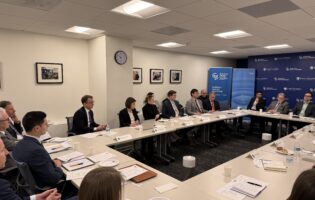Telling Tokyo and Seoul to “Cool It” on History is Not Enough: America Needs a Policy on Historical Reconciliation in East Asia Similar to its Policy in Postwar Europe
On March 6, the Obama administration sent a strong message to Japan and South Korea to work out their differences on historical problems. Obama is scheduled to visit both Tokyo and Seoul next month. While the Obama administration should be commended for taking notice of the East Asian history issue, its approach assumes that Japan-Korea historical tiffs are a local issue, that the United States bears no responsibility for unresolved historical problems in the area, and that Washington can avoid adopting a long-term policy on historical reconciliation.
In fact, the United States does bear moral responsibility for the present impasse in East Asia, unlike in Europe where it played an active role in successful peace-building. Prime Minister Shinzo Abe and other nationalist politicians seeking to negate the outcome of World War II are in office today because of Cold War U.S. policies that encouraged the return to high office of members of Japan’s pre-war and wartime political elite. U.S. support for the Japanese government’s contention that all claims against it had been settled by the San Francisco Peace Treaty and subsequent international agreements has helped close options for resolution of compensation issues. The East Asian history problem will not go away. The presence of strong nation states in East Asia, who have no intention of pooling their sovereignty or resources, makes reconciliation an even greater challenge than it was in postwar Europe, and necessitates American leadership now more than ever.
In this behind-closed-doors strategy seminar, Andrew Horvat will address the U.S. role in Japanese-South Korean tensions, and the practical policy lessons the U.S. and regional players might borrow from the German example.
As a Tokyo-based foreign correspondent, Mr. Horvat reported for more than two decades on Asian politics, society, and regional relations for the Associated Press, The Los Angeles Times, the (London) Independent and U.S. public radio programs. Moving in 1999 to head the Japan office of the Asia Foundation, he worked together with the Friedrich Ebert Stiftung and the Goethe Institut to convene a series of public policy forums on unresolved historical problems between Japan, China, and Korea, one outcome of which was the joint publication in 2003 in collaboration with the Friedrich Ebert Stiftung of Sharing the Burden of the Past: Legacies of War in Europe, America and Asia. Mr. Horvat has written and lectured extensively on the contrasting roles in regional reconciliation of civil society organizations in Japan versus Europe. Between 2008 and 2013 he was director of Stanford University’s overseas studies program in Kyoto where he taught a course titled “World War II: Experience and Memory in Asia.” He continues to teach on the same subject as visiting professor at Josai International University in Tokyo and China.
Questions? Contact Kimberly Frank at kfrank@aicgs.org







